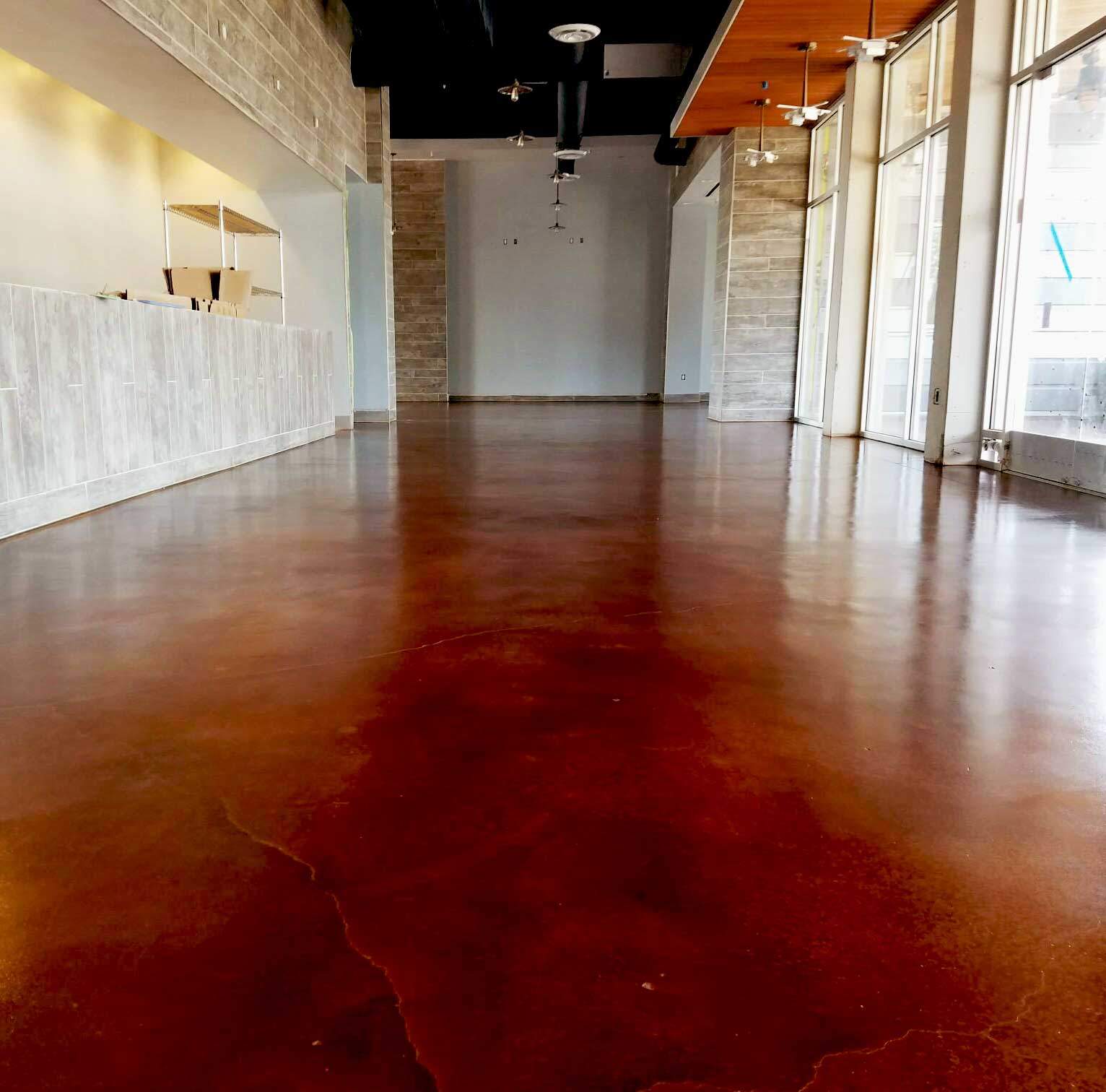Concrete is one of the most popular flooring options because of its sleek look, versatility, and durability. However, using this material creates a risk for a potentially expensive mistake — a set concrete floor with condensing moisture on the top. The most critical step you need to take when finishing your concrete flooring project is to ensure that your concrete floor isn’t releasing excess water vapor.
Does Concrete Contain Water?
Although concrete is a flooring material known for its strength, it isn’t 100% water tight. Vapor can still move through the pores of concrete, and since water is already in the mixture before the concrete sets, your concrete is never going to be 100% dry.
Around half of water in your concrete mix settles into the dry cement mix while some rises to the surface and eventually evaporates. The amount of water that leaves the surface of concrete and evaporates is called the moisture vapor emission rate, or MVER. The remaining water, which shouldn’t be a lot, stays in the pores of the concrete. After the curing process is complete, as long as you don’t have excess moisture, your cement should be “dry” and ready for normal use.
What Are the Reasons for Excess Concrete Moisture?
External reasons for excess concrete moisture before the curing process is finished can include rainwater, poor drainage, and humidity in the air around the floor. When warm or humid air hits the cool surface of the concrete it can turn into surface moisture and impact the condition (and drying process) of the concrete.
Another reason for concrete moisture is the lack of a vapor barrier or a faulty vapor barrier. Without the use of a vapor barrier or moisture mitigation system during the curing process, the concrete will soak up the moisture from the ground around the concrete slabs.
What Issues Does Concrete Moisture Cause?
So why is concrete moisture a bad thing? Excess moisture on or under concrete flooring can increase the humidity of the room, since the moisture is attempting to move out of the concrete. If you move furniture or any other objects on top of your concrete flooring before it is done curing, or while the level of MVER is low (i.e. not finished evaporating), then water can condense beneath these objects and promote the growth of mold.
A concrete floor with too much moisture can also impede the efficiency of your laminate, sealer, or overlay — and if additional flooring is installed over damp concrete, you’re at risk for warped flooring and emulsified adhesives, not to mention mold.
Some more common issues associated with concrete moisture:
- Delamination
- Uneven surfaces
- Discoloration
- Cracking or bubbling
- Reduced lifespan of flooring
- Development of mold
How Can I Check If My Concrete Is Dry Enough?
Once you understand how concrete moisture works and impacts your projects, you’ll want to know how to properly test to see if your concrete is dry enough. Different flooring projects require different levels of moisture — most need the average humidity to stay under 75%, but certain flooring finish products can handle up to 90%.
A common DIY solution to check how dry your flooring is involves securing clear tape or a plastic sheet to your concrete and then waiting 48 hours to see if you can spot condensation. Relative humidity (RH) testing is arguably the best solution. RH probes can be inserted into small drilled holes in the concrete and will let you know an accurate percentage of moisture. Other solutions include calcium chloride test kits and handheld surface meters, although these aren’t as accurate.
Here are some signs that your concrete floor isn’t dry enough and you should test for excess moisture:
- Bubbling, lifting, or peeling on the floor surface
- Light colored residue on the floor surface, indicating salt deposits via condensed vapor
- Musty or mildew odor
How Do I Fix My Concrete Moisture Problem?
The best “fix” for excess concrete moisture is prevention. Understand what to look for and what causes excess moisture before you begin a concrete flooring project, and give your concrete enough time to fully cure and settle. Remember to also find out the moisture tolerance on your specific flooring treatments, and be patient.
Another helpful tip to prevent expensive mistakes is to hire a professional. Specialty Flooring Inc. is proud to provide high-quality flooring services to the state of California, and we’re also ready to answer any of your questions in regard to concrete flooring. Contact us today and let’s chat!


